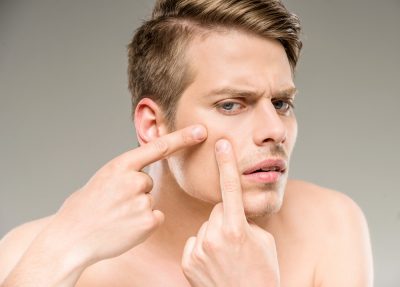Largely due to the effects of a population entering their advanced years, as well as the constant bombardment of television and print advertising, it’s no secret to have adults asking about medications for erectile dysfunction.
The question is, are these erectile dysfunction drugs the first starting point to treat erectile dysfunction? Or, are there other options that are worth exploring?
That’s a question that remains open for answering, particularly for men who struggle with low testosterone levels.
Let’s examine the ways how testosterone interacts with erectile dysfunction, and what options you have as far as treating erectile dysfunction is concerned.
The first thing we need to discuss is who actually needs testosterone treatment – and when you don’t need it at all.
When is testosterone treatment needed – and when it isn’t
It’s fair that one way or another, many men will encounter problems “performing” from time to time – especially when it comes to some form of erectile dysfunction (more commonly abbreviated as ED). ED makes it difficult to achieve or maintain an erection that’s hard enough for sexual activity.
If you are among the men who struggle with erectile dysfunction, then it’s easy to believe the notion that testosterone – the primary sexual hormone responsible for the development of masculine physical, mental, and sexual characteristics – can help.
Thing is, as early as you hit your 30s, testosterone levels start to decline progressively. This is when symptoms of ED happen more often.
However, unless you struggle with other symptoms that are associated with testosterone deficiency, then you might want to consider your options first before you go down the long, expensive, and uncertain route of testosterone replacement therapy.
Here’s why.
Testosterone treatments don’t usually help with erectile dysfunction
 The fact of the matter is, treatments used in cases of low testosterone in men have not been shown to have any effect on improving erection quality in men who have normal T levels.
The fact of the matter is, treatments used in cases of low testosterone in men have not been shown to have any effect on improving erection quality in men who have normal T levels.
This is further supported by studies that show that testosterone treatments do not have any benefit for men with low testosterone whose only symptom is erectile dysfunction.
As we will discuss, erectile dysfunction is instead a symptom of another underlying medical condition.
Erectile dysfunction is caused by weak blood flow to the penis
ED is almost always a result of poor blood circulation to the genitalia. This poor blood flow is then attributable to other underlying medical conditions, such as hypertension, atherosclerosis, and high cholesterol levels.
While low testosterone is generally understood to affect libido, it rarely is a cause of erectile dysfunction as some may assume, and thus testosterone replacement therapy may be an expensive waste of time, bother, and resources.
The risks of testosterone replacement therapy
Testosterone replacement therapy may cause water retention, as well as acne, prostate enlargement, and gynecomastia, or the development of breast tissue in men. Testosterone replacement therapy may also result in lower fertility, and more pronounced symptoms of sleep apnea.
Additionally, it is recommended for women and children to avoid touching open, uncovered areas of skin where testosterone gel has been applied, as it can be transferred from skin to skin.
While the jury’s still out on it, the United States Food and Drug Administration has declared that testosterone use may lead to increased risk of contracting cardiovascular problems.
That’s why people seeking such treatment should ensure that they are administered only medicines that have been approved by the FDA. Continuous checkups and follow-ups with the doctor are also par for the course for men who are seeking such treatment.
One more important thing to consider is the fact that testosterone replacement therapy can cost you an arm and a leg – which is further dependent on the treatment you need. A lot of testosterone therapies require you to stay on it indefinitely to achieve and maintain the desired effect.
Who should consider getting testosterone treatment to address erectile dysfunction?
If you’ve been experiencing symptoms of erectile dysfunction for around several months now, consult your doctor. He or she will be best equipped to help you make the right decision about what course of treatment you should take based on your medical history.
Common symptoms attributed to deficient testosterone levels include the lack of interest in sex, declining muscle size and strength, development of breast tissue, mood swings, and being easily fatigued, even when you have gotten enough rest and sleep.
Your doctor may ask you to get your bloodwork done to check on your hormonal levels, including testosterone. He or she will discuss with you the specifics of your exam, but in general, it is done more than just once, and is best done in the morning, as that is when testosterone levels are at their highest.
If tests confirm your diagnosis of low testosterone, your doctor may line you up for more testing to determine what the root cause of your low testosterone levels are. If no underlying medical condition is determined, then testosterone replacement therapy may be presented as one of your options.
What health issues are related to excessive testosterone in the body?
Excess testosterone, like low testosterone levels, has underlying conditions that need ruling out before coming closer to a diagnosis. Common underlying health conditions related to excess testosterone include adrenal or testicular tumors, hyperthyroidism, or puberty.
Regardless, the underlying medical conditions that cause excess testosterone are uncommon, and are often mistaken for symptoms of steroid abuse. These anabolic steroids are synthesized versions of testosterone that may cause mood and behavioral changes due to their misuse.
What are the symptoms of excess testosterone?
One of the most common causes, if not the most common cause of excess testosterone in the body is due to undergoing testosterone replacement and can be representative of being of an issue that is being overtreated because of the hype surrounding it.
Here are some side effects arising from testosterone replacement include the following:
 Prostate enlargement
Prostate enlargement- Oily skin
- Acne
- Pronounced sleep apnea symptoms
- Water retention
- Lower sperm count
- Testicular shrinkage
- Development of breast tissue
Do breast tissue enlargement and testicular shrinkage sound familiar? That’s because these are also symptoms of low testosterone. These symptoms occur because excess testosterone is converted to estrogen, which is responsible for these effects.
Still think you need testosterone replacement therapy? Read on. If you want to avoid the symptoms and effects of too much testosterone in the body, then you may want to consider avoiding testosterone replacement therapy altogether until you are 100% sure that you need it.
If low testosterone is what you are worried about, there are plenty of lifestyle and dietary changes you can implement before going for the nuclear solution. Try to limit your sugar intake, consume healthy saturated fat, and going on a weight training program or a HIIT program can boost testosterone levels naturally.
A testosterone-first approach to treating ED?
Before sildenafil hit the market and redefined the treatment options for erectile dysfunction, testosterone used to be one of the treatments for it largely due to the role it plays in the male reproductive system, including libido and erections.
What we do know is that getting more testosterone isn’t a magic bullet for ED, which is demonstrated by the fact that some men who experience ED symptoms possess otherwise normal testosterone levels.
Testosterone is usually prescribed for those who are clinically diagnosed with low testosterone, or if other symptoms of low T are present. Testosterone therapy doesn’t guarantee an improvement in erection quality and size, but it nonetheless remains an option to be considered.
One of the advantages of addressing testosterone first before calling in more intensive treatments like testosterone replacement is that it could make taking ED prescription drugs like sildenafil and tadalafil unnecessary in the first place.
Conclusion
As time goes by, erectile dysfunction is increasingly being approached as a systemic medical condition. That’s because erectile problems are symptomatic of more serious underlying conditions like atherosclerosis, or the hardening of the arteries that leads to strokes and heart attacks. That’s why it should be approached from a holistic perspective than just being given an ED pill.
That said, if you ever experience symptoms of ED while otherwise being in good health, then a consultation with your doctor is necessary. He or she will be able to help you determine the next steps to take. If your symptoms are symptomatic of testosterone issues, then testosterone supplementation or therapy might be a logical step. Otherwise, it may be time to consider trying a prescription drug for erectile dysfunction.








COMMENTS